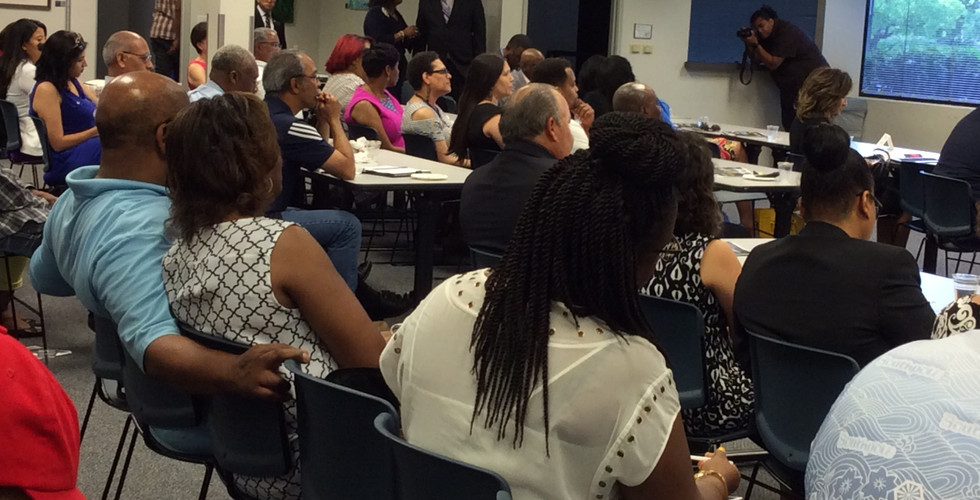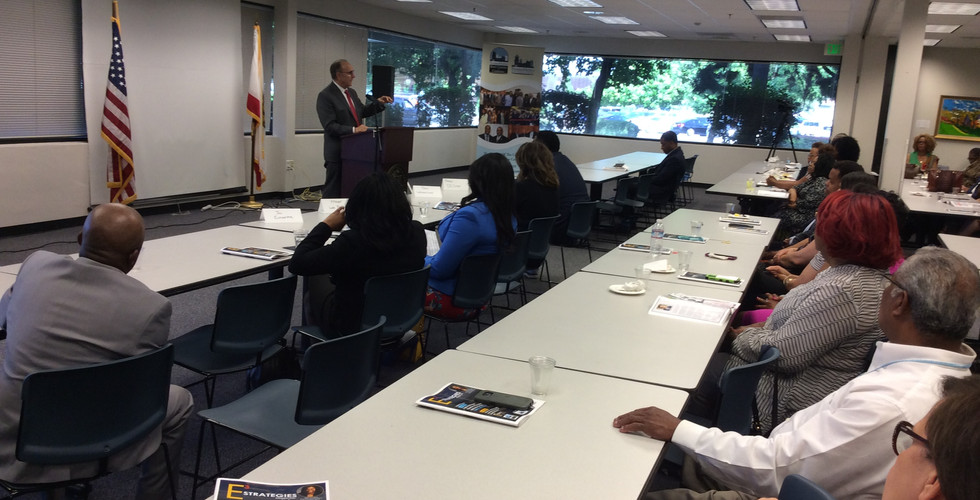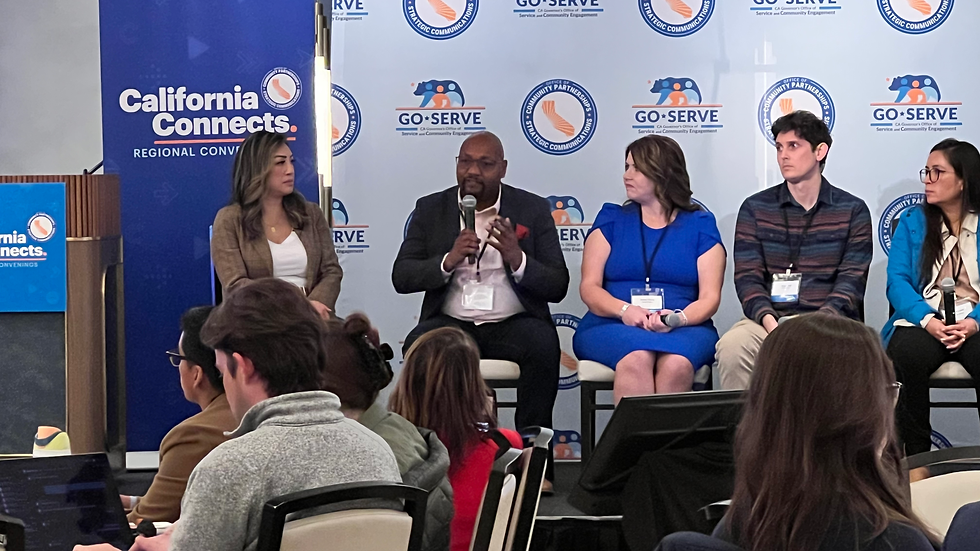Fresno Metro Black Chamber of Comm. new CEO discusses "E3" strategy
- INFO-MD Staff

- May 6, 2017
- 3 min read

FRESNO, CA -- With over 200 Black businesses in the Greater Fresno area, the challenge has always been trying to find their location and visibility--hence the need for a Black Chamber of Commerce is a necessity.
In the 1960s to the late 1970s, Black businesses were thriving in the Central Valley, coming together to collaborate on ventures, and making small successful enterprises under the auspices of the African-American Chamber of Commerce of Fresno: for the most part, desegregation was a nationwide phenomenon, but yet there were still invisible lines that separated Black communities.
Off the heals of the Black Power Movement and mass Vietnam War protests, the organization had over 1,800 successful Black businesses attached at that time and were growing exponentially, according to community activist Royce Dunn.
"They had membership, they had annual and bi-annual meetings, things were happening all the time," said Dunn. "That's when the West side (Fresno) was really a community until everything started moving north -- things disintegrated. Businesses were being franchised and small business loans were being made, people were very successful," said Dunn.

However once the lack of support arose in the late 80s, the struggling organization fell apart; it was a challenge to find the right puzzle pieces to fit again to create something anew: Black businesses were dealing with significant discrimination challenges in equity lending and integration made competition steep and almost unreachable under such conditions. There was less representation in regards to affirmative action; black businesses began to dissipate.
"It was supposed to be economic integration is what King (Rev. Dr. Martin Luther King) was about," said Dunn. "They gave us social integration --it's okay to live next door to somebody, but you're not going to become the CEO of somewhere powerful, or anything like that," explained Dunn.
By the mid-1990s, Roy Turner and Ali Morris were able to assist in resurrecting the African-American Chamber of Commerce of Fresno. With the help of his future wife-to-be, Earlena Morris, who became vice-president of the organization under President Turner, the organization collaborated with the African-American Historical & Cultural Museum of the San Joaquin Valley, Black businesses, and other community organizations to create the successful venture, "Black Dollar Days." The concept helped Black businesses to gain and retain customers.
After the African-American Chamber of Commerce went defunct, in 1999, community leader Ken Blackwood was able to bring together a task force to eventually create the San Joaquin Valley Black Chamber of Commerce with Earlena Morris, Reynolds Johnson, Ali Morris, Patricia Ratliff, Darrell Hunter, DonPreyel Martin, Bobby Cowings, Michelle Thomas, Richard Midgett, and Valerie McCollum-Glass. The organization was officially incorporated December 1, 2000 but launched in early 2001. The name was originally derived to include businesses from Fresno to Bakersfield. Eventually Bakersfield broke off to create its own organization, with guidance of founders Ali & Earlena Morris, to incorporate "The Kern County Black Chamber of Commerce," which still resides in Bakersfield, CA today.
Fast forward to 2017, this past week, The Fresno Metro Black Chamber of Commerce ( FMBCC) has recently named the new leadership from Tate Hill to Fairfield, CA native, Tara Lynn Gray.
In regards to her management background, Gray has received various awards in business community leadership and has served on the California Black Chamber of Commerce, Solano and Alameda County Small Business Development Centers and the California Black Health Network.
A graduate of Saint Mary’s College of California, she received certificates from the University of California Los Angeles (UCLA) Anderson School of Business, Management Development for Entrepreneurs and Intel Business Academy.
Gray also runs her own informational technology consulting business called YADARI Enterprises.
Gray briefly unveiled her "E3" platform to "Educate, Engage, and Empower" at the reception held at the UC Merced Outreach Center:
"At the core of our Chamber's work, we aim to elevate the level of success of
the African-American business community while also uplifting our
disadvantaged communities as a whole."
Watch full excerpt from new FMBCC President & CEO Tara Gray on The ONME Network until May 30th daily from 4:00 PM - 6:00 PM and 4:00 AM -6:00 AM, (listed on the ONME TV guide under "Special Events.") Download the free app to watch on your mobile device: www.app.onmetv.com
















































Comments